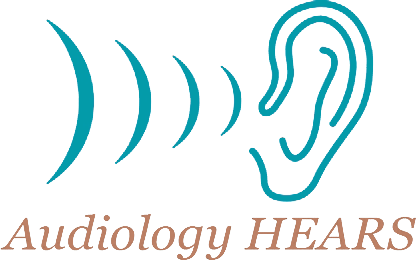Living with hearing loss can come with a few challenges, like managing communication difficulties or facing social stigma. One of the most significant challenges individuals with hearing loss face is deciding when and how to disclose their condition to others. Disclosure can be a deeply personal and sometimes daunting decision, influenced by factors such as stigma, fear of judgment, and concerns about acceptance.
Should You Disclose Your Hearing Loss?
Disclosing your hearing loss is not just about sharing a medical condition; it’s about fostering understanding, building trust, and improving connections. By openly communicating about your hearing loss, you invite others into your world. It will also give you the opportunity to ask for support and accommodations when needed. Disclosure helps raise awareness about hearing loss and challenges stereotypes and misconceptions about hearing loss.
Recognizing the Challenges of Disclosure
Despite the benefits, disclosing hearing loss can be fraught with uncertainties. Many individuals fear being perceived as incompetent or less capable due to their hearing loss. Others may worry about facing discrimination or exclusion in professional or social settings. Finally, the stigma surrounding hearing loss can make disclosure conversations uncomfortable or awkward, further complicating the process.
Choosing the Right Setting
When it comes to disclosing hearing loss, timing and context are important considerations. Choose a time and place where you feel comfortable and confident having the conversation. Aim for a private and relaxed setting where you can speak openly and honestly about your experiences and needs.
You’ll also want to consider the nature of your relationship with the person you’re talking to. If it’s a close family member or friend, you may disclose more than if you’re talking to a coworker or acquaintance.
Being Honest and Authentic
Authenticity is key when it comes to disclosing hearing loss. Be honest and transparent about your condition, using clear and straightforward language to explain how it affects you and your communication abilities. Avoid minimizing or downplaying your experiences, and instead, share your challenges and concerns openly. By speaking from the heart, you invite genuine understanding and empathy from others, and you can build deeper connections and ongoing respect.
Educating Others About Hearing Loss
Many people have limited knowledge or misconceptions about hearing loss, so take the opportunity to provide some education. Offer information about hearing loss, including the causes, symptoms, and impact of hearing loss. Encourage questions and curiosity, since awareness and understanding are key to increasing acceptance.
Asserting Your Needs
When disclosing hearing loss, you can assert your needs confidently. Clearly communicate your preferences regarding communication methods and any accommodations you may need. Be prepared to have follow-up conversations if your needs are not being met. Remember that your hearing loss does not define you or limit your capabilities, and you can be assertive about the support you need.
Navigating Reactions and Responses
After disclosing your hearing loss, it’s natural to anticipate a range of reactions from others, including empathy, curiosity, or even discomfort. While some individuals may respond with understanding and support, others may express surprise, confusion, or lack of awareness about hearing loss. Remember that everyone’s journey with hearing loss is unique, and responses may vary depending on individual experiences and perspectives.
Find More Support
Disclosure can be an emotional experience, so you may want to reach out to family and friends for more support. You can even find a support group to connect with others who understand what you’re going through.
Embracing Your Identity
Hearing loss doesn’t define you, but it is a part of your identity. Embrace your hearing loss as an aspect of who you are. It simply adds depth and complexity to your unique story. By accepting your identity and confidently sharing your experiences with others, you can help build a world that’s more inclusive and compassionate.
Book a Hearing Test
Disclosing hearing loss takes courage. You’ll need to be vulnerable with others and share something personal about yourself. By choosing the right setting, being honest, and taking time to educate others, you can navigate disclosure conversations and find acceptance and support. Don’t be afraid to ask for accommodations and allow others to support you.
If you’re ready to talk about your hearing loss, visit us for a hearing test. Together we’ll review your hearing needs and help you find the perfect devices to help you hear.
